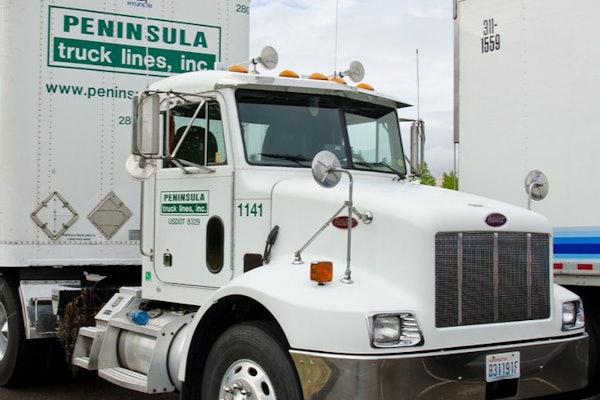Randy K. Sheeler, president and chief executive officer of F.T. Silfies — a regional mid-Atlantic dry bulk carrier based in Nazareth, Pa. — spoke today, Oct. 11, to the Pennsylvania House of Representatives Finance Committee at the Mack World Headquarters in Allentown regarding new heavy-duty diesel engine emissions standards and the use of state tax credits to encourage purchase of cleaner truck engine technology.
“Over the last 15 years, new regulations on diesel engine emissions have sparked a revolution in the heavy-duty trucking industry,” Sheeler said. “For a Class 8 truck customer, the advent of new emissions regulations adds two areas of concern to the list of considerations in their decision-making process on buying a new truck – the additional cost of the vehicle associated with emissions reduction, and the impact of the new emissions control technology on the performance of the vehicle. And this combination of factors leads to the market behavior known in the industry as ‘pre-buy.’ ”
Pennsylvania could secure significant environmental benefits for its citizens, Sheeler said, by offering tax credits to purchasers of heavy-duty trucks in order to partially offset the cost of new diesel emission reduction technologies. “This approach would address the desire to improve air quality, but in a manner that supports the efforts of Pennsylvania businesses to succeed and grow in the state – whether it’s a small construction or hauling company, a Pennsylvania-based truck distributor, or a truck and component manufacturing firm,” Sheeler said.
“Silfies is no different than any other medium-sized trucking company across Pennsylvania,” Sheeler said. “The cost to operate a trucking company continues to rise with diesel fuel prices at an all-time high, liability insurance, rising healthcare costs, worker’s compensation increases and, now, emissions controls on the equipment we purchase to do our jobs.” Without tax relief, trucking companies will not be able to afford new equipment and will run old equipment as long as they can, he said.
“The increased maintenance costs to keep older equipment on the road will drive companies out of business, and carriers will have a tendency to not comply with their own preventative maintenance programs,” Sheeler said. “We all want a cleaner environment, but the cost of doing so will come at the expense of many third- and forth-generation trucking companies. These costs are being passed on to the truck purchasers, and a consensus has emerged in the marketplace on the average cost of the new systems.”








